The history of Gloucester, Massachusetts, is a captivating tale of colonial settlement, maritime adventure, and cultural vibrancy.
Founded in 1623 by colonists from Dorchester, England, Gloucester quickly emerged as a pivotal hub along the Atlantic coast.
Its strategic location and abundant marine resources propelled it into a leading fishing center, earning it the title of “Cod Fishing Capital of the World” by the 18th century.
Gloucester’s ties to exploration are also noteworthy, with Samuel de Champlain mapping its harbor in the early 17th century.
Over the centuries, Gloucester has evolved into a vibrant community renowned for its artistic heritage, historic landmarks, and close-knit neighborhoods.
As one delves into the history of Gloucester, they uncover a tapestry of resilience, innovation, and cultural richness that continues to shape its identity today. Stay focused.
Early Exploration and Settlement in the History of Gloucester, Massachusetts
The history of Gloucester, Massachusetts, is deeply intertwined with the early exploration and settlement of the New World.
From its initial discovery by Samuel de Champlain in 1605–1606 to the establishment of a permanent settlement by colonists from Dorchester, England, in 1623, Gloucester has played a pivotal role in developing the American Northeast.
Named after its English counterpart, Gloucester grew into a thriving maritime and fishing center, eventually incorporated as a town in 1642.
This article delves into Gloucester’s early exploration and settlement, highlighting key events and developments that shaped its history.
Samuel de Champlain’s Exploration (1605–1606)
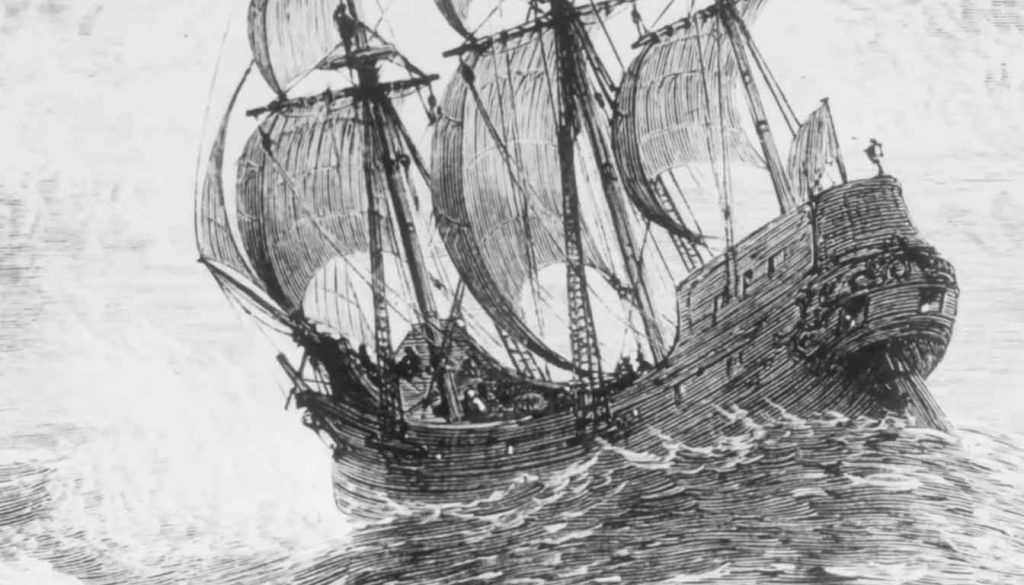
The renowned French explorer Samuel de Champlain first visited and mapped Gloucester Harbor during his exploration of the New England coast in the early 17th century.
Champlain’s detailed mapping and documentation laid the groundwork for future European expeditions and settlement efforts in the region.
Settlement by Colonists from Dorchester, England (1623)
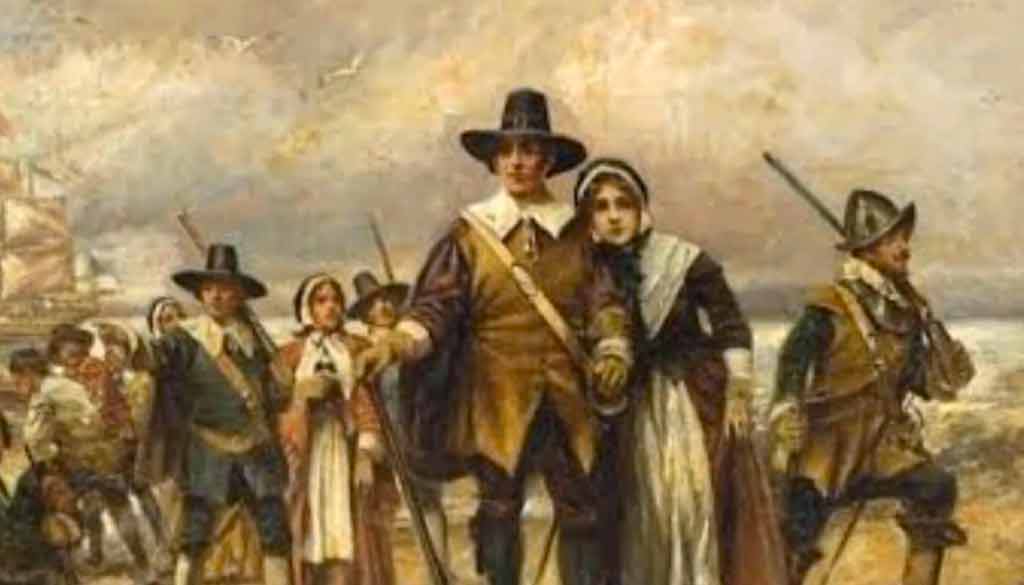
In 1623, a group of colonists from Dorchester, England, seeking new opportunities and religious freedom, established a permanent settlement at Gloucester.
These early settlers faced numerous challenges, including harsh winters, interactions with indigenous peoples, and the need to establish sustainable livelihoods in a new and unfamiliar environment.
Incorporation as a Town (1642)
Gloucester was officially incorporated as a town in 1642, marking a significant milestone in its development and governance.
The town’s incorporation provided a framework for local administration, land ownership, and community organization, fostering stability and growth in the burgeoning settlement.
Maritime and Fishing Center
Gloucester thrived as a maritime and fishing center from its earliest days, capitalizing on its strategic location along the Atlantic coast and abundant marine resources.
The town’s proximity to fertile fishing grounds and access to international trade routes contributed to its economic prosperity and cultural diversity.
Gloucester, Massachusetts, is a testament to the enduring legacy of early exploration and settlement in the New World.
From Samuel de Champlain’s pioneering expeditions to establishing a vibrant coastal community by English colonists, Gloucester’s history is rich with tales of resilience, adventure, and innovation.
Founding and Growth of Gloucester, Massachusetts
The founding and growth of Gloucester, Massachusetts, represent a fascinating chapter in the history of early American colonization and maritime development.
Here’s an overview of how Gloucester was founded and how it grew over time:
Establishment of a Permanent Settlement (1623)
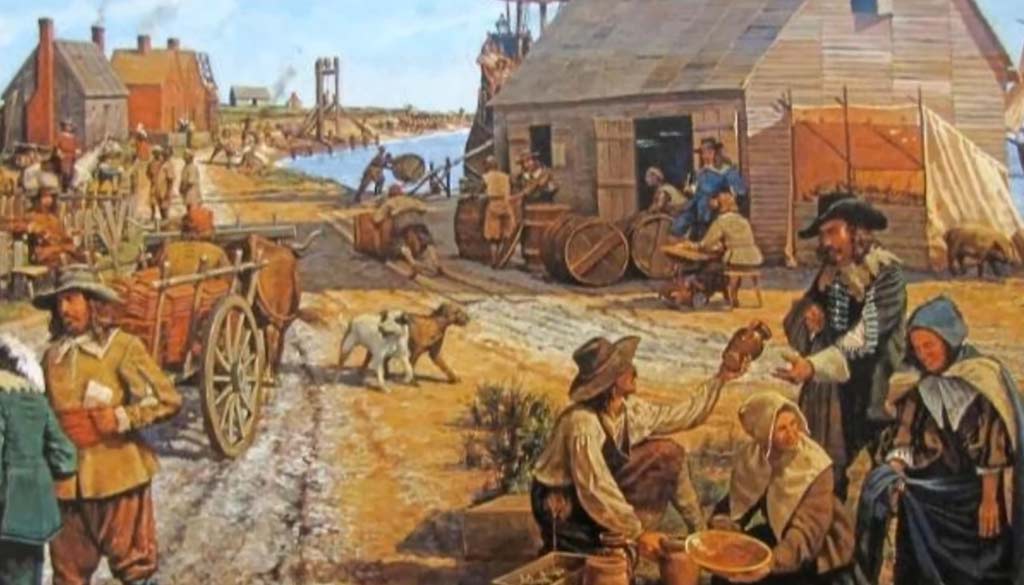
Gloucester traces its roots back to 1623 when a group of English settlers from Dorchester, England, established a permanent settlement in the area.
These settlers were drawn to Gloucester by its natural harbor, abundant marine resources, and opportunities for trade and commerce.
Incorporation as a Town (1642)
Gloucester was officially incorporated as a town in 1642, formally recognizing its status as a distinct community within the Massachusetts Bay Colony.
The town’s incorporation provided a framework for local governance, land ownership, and community organization, facilitating its growth and development.
Maritime and Fishing Industry (17th-19th centuries)
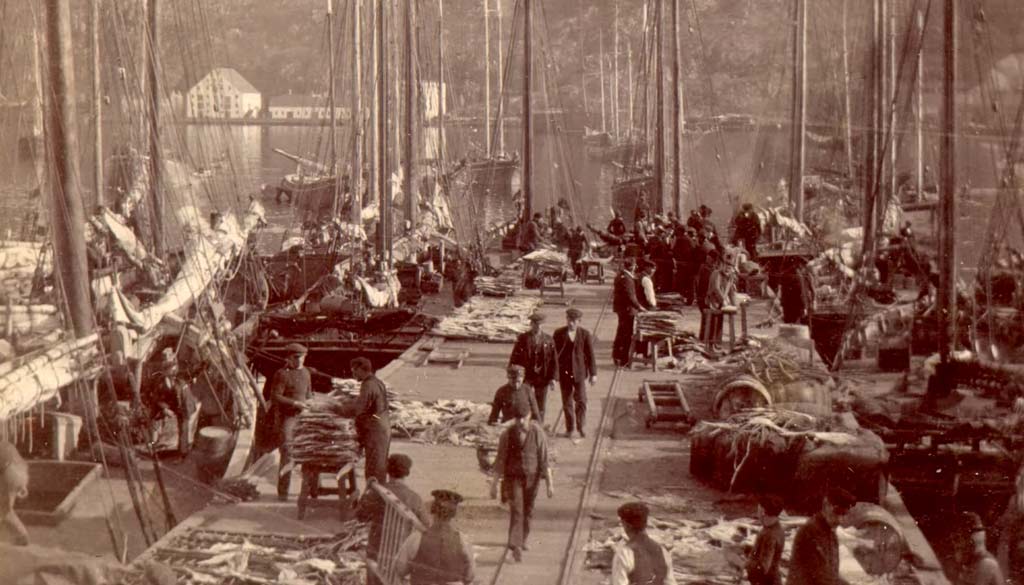
Gloucester’s strategic location along the Atlantic coast and proximity to fertile fishing grounds made it an ideal hub for maritime activities.
The town quickly emerged as a center for the fishing industry, with residents engaging in activities such as cod fishing, whaling, shipbuilding, and trade.
Gloucester’s fishing fleet became renowned for its skill and productivity, contributing significantly to its economic prosperity and growth.
Expansion and Diversification (19th-20th centuries)
Throughout the 19th and early 20th centuries, Gloucester experienced continued expansion and diversification driven by technological advancements, transportation, and industry.
The introduction of steam-powered vessels, refrigeration techniques, and other innovations revolutionized the fishing industry and expanded Gloucester’s reach into international markets.
In addition to fishing, Gloucester’s economy diversified into other sectors, such as manufacturing, tourism, and services, further fueling its growth and development.
Cultural and Community Development
Gloucester attracted a diverse population of immigrants and settlers from various backgrounds, contributing to the town’s rich cultural tapestry.
The community of Gloucester fostered a strong sense of identity and pride, reflected in its traditions, festivals, and local institutions.
Artists, writers, and intellectuals were also drawn to Gloucester’s picturesque landscapes and vibrant maritime atmosphere, contributing to its reputation as a cultural hub.
The founding and growth of Gloucester, Massachusetts, reflect the resilience, ingenuity, and entrepreneurial spirit of its early settlers and residents.
Maritime and Fishing Heritage of Gloucester Massachusetts
Gloucester, Massachusetts’s maritime and fishing heritage is deeply ingrained in its identity and history.
Gloucester has been renowned for its seafaring traditions, robust fishing industry, and maritime prowess since its earliest days as a colonial settlement to the present. Here’s an overview of Gloucester’s maritime and fishing heritage:
Colonial Origins and Early Fishing Ventures
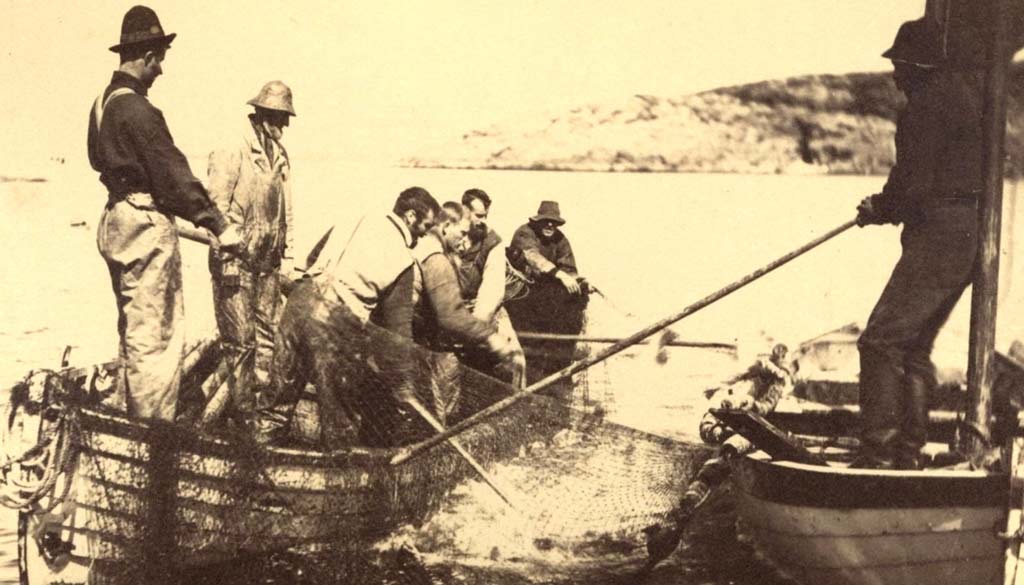
Gloucester’s maritime heritage dates back to its founding in the early 17th century when English settlers established a permanent settlement along the Massachusetts coast.
Recognizing the abundance of marine resources in the region, settlers quickly turned to fishing as a primary economic activity, particularly cod fishing.
Cod Fishing Capital of the World
By the 18th century, Gloucester had earned the reputation as the “Cod Fishing Capital of the World,” thanks to its skilled fishermen, sturdy vessels, and strategic location near the rich fishing grounds of the Grand Banks.
Gloucester’s fishing fleet increased, with hundreds of vessels setting sail each season to harvest cod and other species from the North Atlantic.
Innovation and Technological Advancements
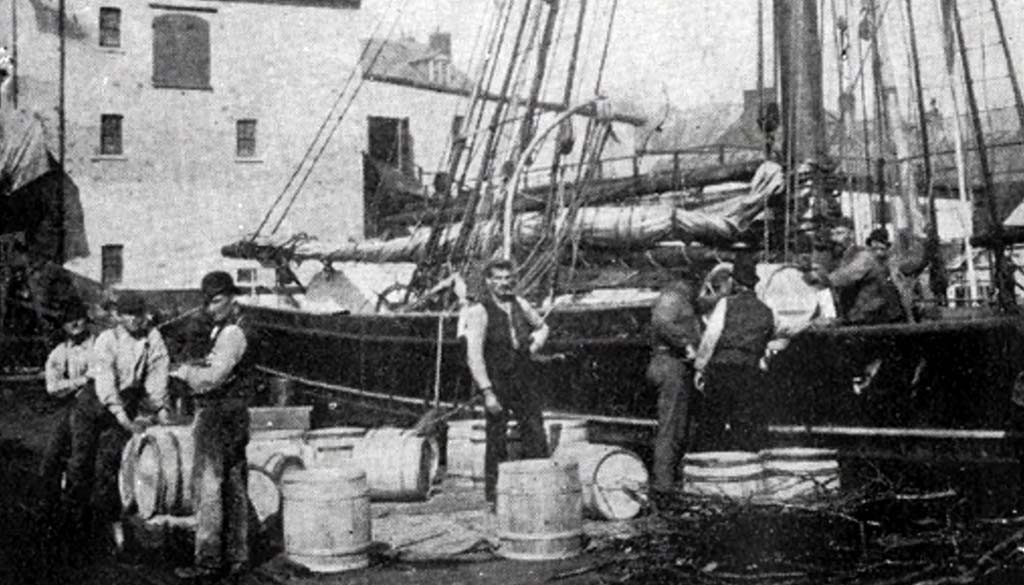
Gloucester was at the forefront of innovation in the fishing industry, adopting new technologies and techniques to improve efficiency and productivity.
The introduction of steam-powered vessels, mechanized processing equipment, and refrigeration methods revolutionized the way fish were caught, preserved, and transported, enabling Gloucester to maintain its position as a leading fishing port.
Whaling and Maritime Trade
In addition to cod fishing, Gloucester was also involved in whaling expeditions during the 18th and 19th centuries, with local ships venturing into distant oceans in search of whales for their oil and fat.
The maritime trade flourished in Gloucester, with ships transporting fish, lumber, granite, and other goods to markets along the East Coast and beyond.
Community and Culture
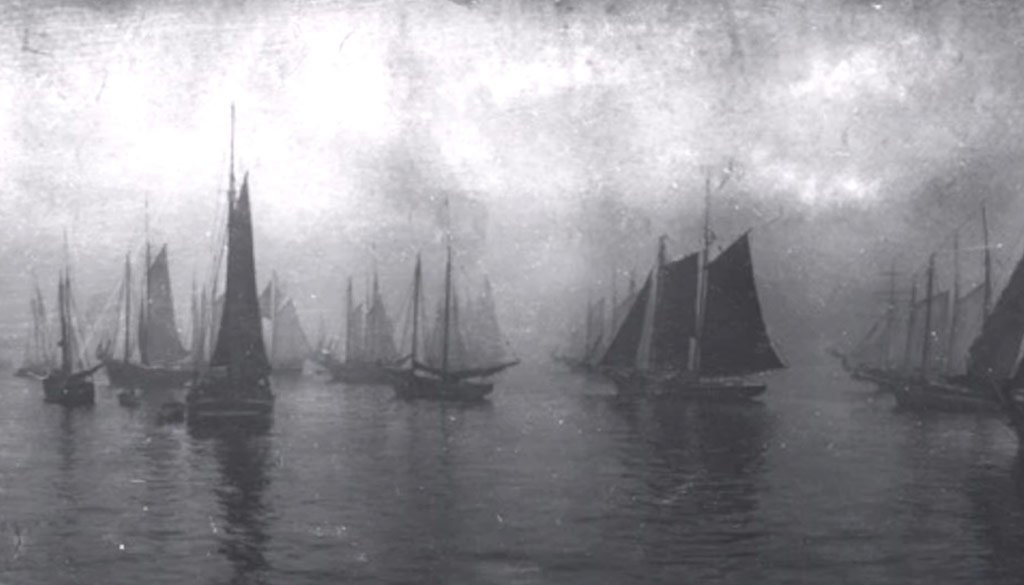
Gloucester’s maritime heritage is deeply intertwined with its community and culture, shaping the identity and livelihoods of generations of residents.
The town’s fishing families developed close-knit communities, sharing a common bond forged by the challenges and rewards of life at sea.
Gloucester’s maritime heritage is celebrated through festivals, events, and landmarks that honor its seafaring legacy, including the iconic Gloucester Fisherman’s Memorial.
Modern Challenges and Preservation Efforts
Gloucester’s fishing industry has adapted and evolved in the face of modern challenges such as overfishing, environmental concerns, and economic shifts.
Efforts are underway to preserve and promote Gloucester’s maritime heritage, including initiatives to support sustainable fishing practices, preserve historic vessels, and educate future generations about the town’s maritime legacy.
Gloucester, Massachusetts, stands as a living testament to the enduring legacy of its maritime and fishing heritage.
Cultural and Architectural Heritage in the History of Gloucester Massachusetts
Gloucester, Massachusetts’s cultural and architectural heritage is a testament to its rich history and diverse influences.
Gloucester’s heritage is reflected in its historic buildings, cultural institutions, and artistic traditions, from its colonial roots to its vibrant present-day community. Here’s an overview of Gloucester’s cultural and architectural heritage:
Colonial Settlement and Early Architecture
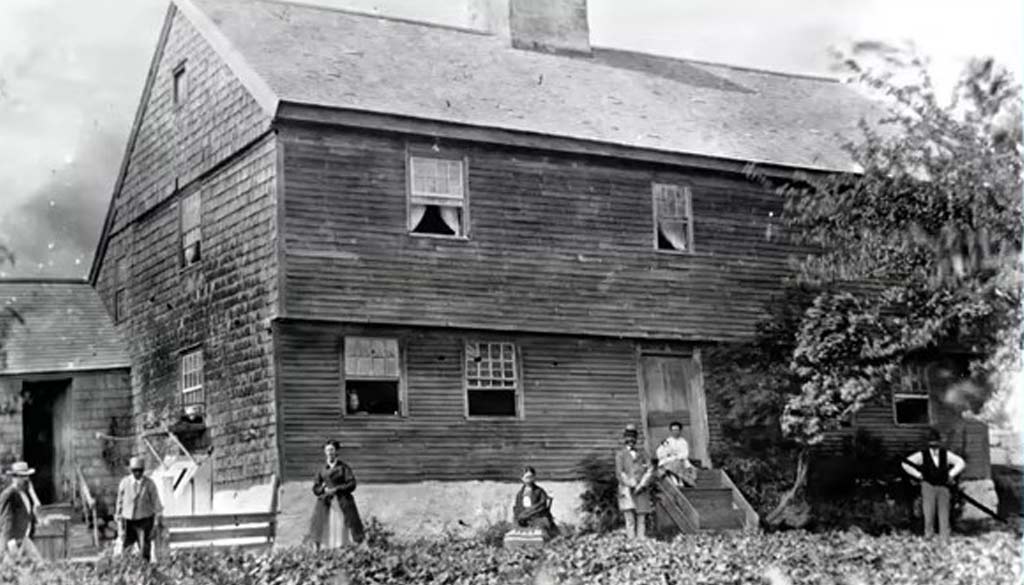
Gloucester’s architectural heritage traces back to its colonial settlement in the early 17th century, with the construction of simple, practical structures reflecting the New England colonial style.
Many of Gloucester’s oldest buildings, such as the White-Ellery House (built in 1710), still stand today, offering glimpses into the town’s early architectural traditions.
Maritime Influence and Fishing Industry
Gloucester’s maritime heritage is evident in its architecture, with numerous historic buildings and structures associated with the town’s fishing industry.
Fishermen’s homes, warehouses, and wharves line the waterfront, reflecting Gloucester’s bustling fishing port and maritime center role.
Victorian Era and Architectural Revival
In the 19th century, Gloucester experienced a period of architectural revival influenced by Victorian-era styles.
Elegant Victorian mansions, adorned with intricate detailing and ornate facades, were built by affluent residents along Gloucester’s scenic coastal neighborhoods, such as East Gloucester and Magnolia.
Artistic and Cultural Community
Gloucester has long been a magnet for artists, writers, and intellectuals drawn to its picturesque landscapes, vibrant maritime atmosphere, and sense of community.
The town’s cultural heritage is reflected in its numerous art galleries, studios, and cultural institutions, including the Cape Ann Museum, which preserves and showcases the region’s artistic legacy.
Art Colonies and Creative Enclaves
Gloucester was home to several art colonies and creative enclaves during the late 19th and early 20th centuries, including the Rocky Neck Art Colony, America’s oldest continuously operating art colony.
These artistic communities fostered creativity, collaboration, and innovation, leaving an indelible mark on Gloucester’s cultural landscape.
Preservation and Adaptive Reuse
Efforts to preserve Gloucester’s architectural heritage are ongoing, with many historic buildings undergoing restoration and adaptive reuse projects.
Historic landmarks such as City Hall, the Gloucester Lyceum and Sawyer Free Library, and the Sargent House Museum serve as reminders of Gloucester’s architectural legacy and cultural significance.
Gloucester, Massachusetts, boasts a rich cultural and architectural heritage shaped by centuries of history, maritime tradition, artistic expression, and community resilience.
FAQs
When was Gloucester, Massachusetts, founded?
Gloucester was first settled by colonists from Dorchester, England, in 1623. The settlement increased, eventually becoming a town in 1642.
Since then, Gloucester has played a significant role in American history as a maritime and fishing center.
What is Gloucester’s connection to Samuel de Champlain?
Samuel de Champlain, the renowned French explorer, visited and mapped Gloucester Harbor while exploring the New England coast in 1605–1606.
His detailed mapping laid the groundwork for future European settlement and regional exploration efforts.
How did Gloucester become known as a fishing hub?
Gloucester’s strategic location along the Atlantic coast and proximity to fertile fishing grounds contributed to its emergence as a fishing hub.
The town’s skilled fishermen, sturdy vessels, and innovative fishing techniques helped establish Gloucester as the “Cod Fishing Capital of the World” by the 18th century.
What role did Gloucester play in the whaling industry?
Gloucester was involved in the whaling industry during the 18th and 19th centuries. Local ships ventured into distant oceans searching for whales for their oil and fat.
Gloucester’s whaling expeditions contributed to its maritime economy and further solidified its reputation as a seafaring community.
What cultural attractions highlight Gloucester’s history?
Gloucester boasts several cultural attractions that showcase its rich history, including the Cape Ann Museum, which preserves and celebrates the region’s artistic and maritime heritage.
The Gloucester Fisherman’s Memorial and historic landmarks such as the Sargent House Museum offer insights into the town’s past.
Wrapping Up
Gloucester, Massachusetts, is a beacon of maritime heritage and colonial history. From its founding in 1623 to its bustling present-day community, Gloucester’s story is one of resilience, exploration, and cultural richness.
Its role as a fishing hub, its connections to explorers like Samuel de Champlain, and its vibrant artistic communities contribute to its unique identity.
As Gloucester continues to honor its past while embracing the future, its history remains a source of pride and inspiration for residents and visitors alike. Thank you so much.
Jaclyn Lowe